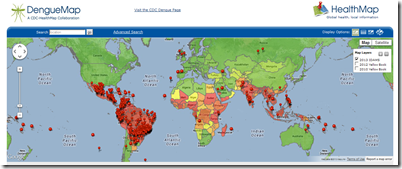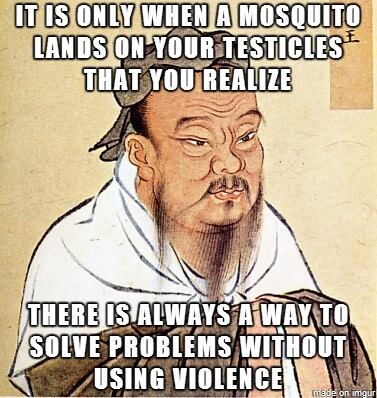It looks like you're using an Ad Blocker.
Please white-list or disable AboveTopSecret.com in your ad-blocking tool.
Thank you.
Some features of ATS will be disabled while you continue to use an ad-blocker.
share:
Over 200 million people are infected by malaria each year, and the majority of the 627,000 deaths per year are children younger than five. The disease is carried by mosquitos who act as vectors for the parasite. It's only transmitted to humans by female mosquitoes, as they're the only ones who bite. A team of researchers led by Andrea Crisanti of the Imperial College London managed to genetically modify mosquitos to produce 95% male offspring, eliminating mosquito populations along with the risk of malaria. The results of the study were published in Nature Communications.
In most species of mosquito, the females need a blood meal in order to acquire the nutrients to create viable eggs. When she does, she can lay about 200 eggs at a time in water, and up to 3,000 eggs over the course of her lifetime. About half of those offspring will be daughters, many of whom will live long enough to produce that amount of offspring also. For humans living near mosquitos carrying the parasite that causes malaria, those numbers of female mosquitos present a very real threat.
But what if the numbers could be skewed so that the sex ratio favors males, who are harmless to humans? This is exactly what Crisanti’s team set out to do with Anopheles gambiae, a species of mosquito endemic to sub-Saharan Africa, where 95% of malaria deaths occur. The researchers modified the males with the enzyme I-Ppol, which excises the X chromosome during spermatogenesis. This renders sperm that would produce daughters to be non-functional, while the sperm that will create male offspring are unaffected. As a result, about 95% of the resulting offspring are male.
Next, modified males were introduced to five caged wild-type populations. As the males mated with the females, they passed along the same mutation until it dominated the population. For four of the five populations, it took only six generations for the mosquitos to die out due to a lack of females.
“What is most promising about our results is that they are self-sustaining,” co-author Nikolai Windbichler said in a press release. “Once modified mosquitoes are introduced, males will start to produce mainly sons, and their sons will do the same, so essentially the mosquitoes carry out the work for us.”


This is a huge step in the right direction IMO. Of course as they admit they are still in the early stages and they are testing for any unseen complications that may arise. As it turns out the ecosystem wouldn't really miss them as another species could easily fill the niche. Erradicating those buggers would work to stabilise economies such as Africa where it costs them about 12 billion a year due to malaria infections. Malaria is a huge killer of people worldwide as well.
My father had contracted malaria while in Vietnam and I can remember that every year it would come back on him at least once making very sick for a few days. In fact, I think it had a role in his death as he seemed like it was coming back on him before his stroke. Dengue fever is no joke either, but it doesn't stay with you like malaria. It would be great to eliminate the fear of life threatening diseases borne from a mosquito bite.
Growing up I had heard stories that the love bugs here in Florida were a genetic experiment to engineer a mosquito killer gone awry however that turned out to be a wives tale. If you don't know what love bugs are then be grateful they destroy the paint on your car and love the smell of exhaust so they clog up the roadways. I only add that bit in because I am sure someone else has heard that tale before as well.
Anyway what do you think of this development ATS?
Links below to articles on the matter the source article came from IFLScience that is below as well.
IFL Science
www.nature.com...
jeb.biologists.org...
Many years ago --- the 70's maybe? --- researchers achieved a similar tactic by exposing male mosquitos to x-rays. The irradiation rendered them
sterile but they would still mate with females thereby ending the latters' reproductive cycles. I'm not sure why the program wasn't rolled-out.
Probably because the chemical companies whined loudly.
I'm all for it but once they are all gone do we know If it will impact on the bugs and other stuff which eat them?.
Yes make a cure but to wipe out a specie like this I dunno.
Yes make a cure but to wipe out a specie like this I dunno.
Mosquitoes will get no sympathy from me on their high pitched buzz to extinction.
May this project come to fruition and its goal realized.
May this project come to fruition and its goal realized.
edit on 6/12/2014 by CaticusMaximus because: (no reason given)
originally posted by: Hoosierdaddy71
Guess we can kiss the bats goodbye
Nope. Bats are generalist insectivores, and study of bat diets in the wild show that mosquitoes generally account for only a tiny part of the actual bat diet. And seeing as bats do not completely eradicate insects from an area, that means there is always enough spare insect food around.
If the environment the bat lives in is saturated with mosquitoes and little to nothing else (such as test environment), the above changes. However where mosquitoes flourish, so do tons of other flying insects, essentially all of which the bat will eat.
Mosquitoes are in fact not a substantial portion of a bats normal diet.
edit on 6/12/2014 by CaticusMaximus because: (no reason given)
originally posted by: CaticusMaximus
originally posted by: Hoosierdaddy71
Guess we can kiss the bats goodbye
Nope. Bats are generalist insectivores, and study of bat diets in the wild show that mosquitoes generally account for only a tiny part of the actual bat diet. And seeing as bats do not completely eradicate insects from an area, that means there is always enough spare insect food around.
If the environment the bat lives in is saturated with mosquitoes and little to nothing else (such as test environment), the above changes. However where mosquitoes flourish, so do tons of other flying insects, essentially all of which the bat will eat.
Mosquitoes are in fact not a substantial portion of a bats normal diet.
Everybody is convinced that Monsanto ' s GM grains are going to kill us. So modified bugs will have no negative effect?
We shall see but I say don't mess with mother nature.
a reply to: Hoosierdaddy71
Mother Nature sure is messing with the 200,000 people who die from malaria each year.
Mother Nature sure is messing with the 200,000 people who die from malaria each year.
originally posted by: jtma508
Many years ago --- the 70's maybe? --- researchers achieved a similar tactic by exposing male mosquitos to x-rays. The irradiation rendered them sterile but they would still mate with females thereby ending the latters' reproductive cycles. I'm not sure why the program wasn't rolled-out. Probably because the chemical companies whined loudly.
I remember reading an article in National Geographic in the 1970's about using radiation treated screw-worm flies to achieve the same result. They would treat male screw worn maggots with radiation to make them sterile, they air-dropped the pupae over large sections of Texas, as I remember it. The sterile males were supposed to mate with the females... they only mate once, thereby reducing the numbers of flies.
I don't know how great a success it was.
originally posted by: GetHyped
a reply to: Hoosierdaddy71
Mother Nature sure is messing with the 200,000 people who die from malaria each year.
I'm only saying be careful what you mess with.
200k die from malaria.
What happens when the fix for that problem kills 2 million.
Thats all well and good, i hate the ittle bloodsucking parasites, they spread disease and are a general nuisance, however i wonder how they can
guarantee against
Horizontal Gene Transference so as not to have that trait passed outside of its orignal genome.
I hope someome with a bit of knowledge in this area would comment.
I hope someome with a bit of knowledge in this area would comment.
Anybody ever read/watch Jurassic Park?
"Life uuuuh, finds a way" haha good'ol Ien Malcom/Jeff Goldblum
Like, seriously? Isn't it bad enough they are killing our natural bees
I wish they would stop tampering with life. Especially on such a grossly unregulated, and unrepresented scale
"Life uuuuh, finds a way" haha good'ol Ien Malcom/Jeff Goldblum
Like, seriously? Isn't it bad enough they are killing our natural bees
I wish they would stop tampering with life. Especially on such a grossly unregulated, and unrepresented scale
edit on 12-6-2014 by
Ilovemygreatdanes because: (no reason given)
a reply to: Hoosierdaddy71
It's very probable we could remove mosquitoes entirely and not suffer any adverse consequences:
www.nature.com...
More than worth the rick IMO.
It's very probable we could remove mosquitoes entirely and not suffer any adverse consequences:
Yet in many cases, scientists acknowledge that the ecological scar left by a missing mosquito would heal quickly as the niche was filled by other organisms. Life would continue as before — or even better. When it comes to the major disease vectors, "it's difficult to see what the downside would be to removal, except for collateral damage", says insect ecologist Steven Juliano, of Illinois State University in Normal. A world without mosquitoes would be "more secure for us", says medical entomologist Carlos Brisola Marcondes from the Federal University of Santa Catarina in Brazil. "The elimination of Anopheles would be very significant for mankind."
www.nature.com...
More than worth the rick IMO.
originally posted by: GetHyped
a reply to: Hoosierdaddy71
Mother Nature sure is messing with the 200,000 people who die from malaria each year.
That's natures way of thinning out the herd. Killing off the mosquitoes will have a very bad effect on nature.
originally posted by: GetHyped
a reply to: Hoosierdaddy71
It's very probable we could remove mosquitoes entirely and not suffer any adverse consequences:
Yet in many cases, scientists acknowledge that the ecological scar left by a missing mosquito would heal quickly as the niche was filled by other organisms. Life would continue as before — or even better. When it comes to the major disease vectors, "it's difficult to see what the downside would be to removal, except for collateral damage", says insect ecologist Steven Juliano, of Illinois State University in Normal. A world without mosquitoes would be "more secure for us", says medical entomologist Carlos Brisola Marcondes from the Federal University of Santa Catarina in Brazil. "The elimination of Anopheles would be very significant for mankind."
www.nature.com...
More than worth the rick IMO.
Did you fully read your link?
"Mosquitoes are delectable things to eat and they're easy to catch," says aquatic entomologist Richard Merritt, at Michigan State University in East Lansing. In the absence of their larvae, hundreds of species of fish would have to change their diet to survive. "This may sound simple, but traits such as feeding behaviour are deeply imprinted, genetically, in those fish," says Harrison. The mosquitofish (Gambusia affinis), for example, is a specialized predator — so effective at killing mosquitoes that it is stocked in rice fields and swimming pools as pest control — that could go extinct. And the loss of these or other fish could have major effects up and down the food chain. Many species of insect, spider, salamander, lizard and frog would also lose a primary food source. In one study published last month, researchers tracked insect-eating house martins at a park in Camargue, France, after the area was sprayed with a microbial mosquito-control agent1. They found that the birds produced on average two chicks per nest after spraying, compared with three for birds at control sites.
Without these bugs there are species that will disappear.
originally posted by: GetHyped
a reply to: buster2010
Easy to say when it's not your herd being thinned.
That's nature not everything is happiness and sunshine.
a reply to: boymonkey74
GetHyped pretty much answered your question te article says the same on the matter.
Mosquitos will get no sympathy from me we have over a hundred species every year going extinct this one will not be missed.
Malaria doesn't just kill humans either.
I think this a genius technique to have them breed themselves out of existence. After though I will not be able to use this saying
.

I am willing to make the sacrifice.
GetHyped pretty much answered your question te article says the same on the matter.
Mosquitos will get no sympathy from me we have over a hundred species every year going extinct this one will not be missed.
Malaria doesn't just kill humans either.
There are over 200 species of malaria. Humans are infected by five. But birds, bats, lizards and antelopes are also hosts for malaria parasites. Hawaiian birds become very sick and dozens of species have become extinct as a result of the introduction of malaria. Each species of malaria has a different life cycle and life history. Genetic sequencing will allow the study of life cycle changes, pathology and virulence www.abc.net.au...
I think this a genius technique to have them breed themselves out of existence. After though I will not be able to use this saying
.

I am willing to make the sacrifice.
edit on 12-6-2014 by Grimpachi because: (no reason given)
a reply to: buster2010
Did you?
Did you?
With many options on the menu, it seems that most insect-eaters would not go hungry in a mosquito-free world. There is not enough evidence of ecosystem disruption here to give the eradicators pause for thought.
new topics
-
Gaetz withdraws from attorney general consideration
US Political Madness: 1 hours ago -
Bridgewater Triangle
General Chit Chat: 1 hours ago -
Is Russia Using a New Type of Beam Weapon Against Ukraine?
Weaponry: 2 hours ago -
Here is why Western leaders in NATO have zero fear of nuclear warfare. At all. Zero.
World War Three: 4 hours ago -
International Criminal Court Issues Arrest Warrant For Netanyahu
Breaking Alternative News: 4 hours ago -
racist rant, but she made the arguement to get rid of DEI
US Political Madness: 6 hours ago -
Well we know Putins ICBMs won't fail in their silos
World War Three: 6 hours ago
top topics
-
FEMA Head Admits Agency Skipped 20 Homes with Trump Signs
Mainstream News: 17 hours ago, 19 flags -
Well we know Putins ICBMs won't fail in their silos
World War Three: 6 hours ago, 12 flags -
racist rant, but she made the arguement to get rid of DEI
US Political Madness: 6 hours ago, 9 flags -
International Criminal Court Issues Arrest Warrant For Netanyahu
Breaking Alternative News: 4 hours ago, 8 flags -
Is Russia Using a New Type of Beam Weapon Against Ukraine?
Weaponry: 2 hours ago, 7 flags -
Why isn't Psychiatry involved?
Social Issues and Civil Unrest: 12 hours ago, 4 flags -
Here is why Western leaders in NATO have zero fear of nuclear warfare. At all. Zero.
World War Three: 4 hours ago, 4 flags -
Help in song interpretation
Music: 14 hours ago, 3 flags -
Gaetz withdraws from attorney general consideration
US Political Madness: 1 hours ago, 3 flags -
Bridgewater Triangle
General Chit Chat: 1 hours ago, 2 flags
active topics
-
International Criminal Court Issues Arrest Warrant For Netanyahu
Breaking Alternative News • 30 • : CriticalStinker -
Russia Ukraine Update Thread - part 3
World War Three • 6850 • : andy06shake -
Gaetz withdraws from attorney general consideration
US Political Madness • 6 • : marg6043 -
-@TH3WH17ERABB17- -Q- ---TIME TO SHOW THE WORLD--- -Part- --44--
Dissecting Disinformation • 3337 • : Thoughtful3 -
Is Russia Using a New Type of Beam Weapon Against Ukraine?
Weaponry • 8 • : nerbot -
How can you defend yourself when the police will not tell you what you did?
Posse Comitatus • 98 • : Freeborn -
Well we know Putins ICBMs won't fail in their silos
World War Three • 78 • : andy06shake -
Help in song interpretation
Music • 9 • : FullHeathen -
President-elect TRUMP Picks MATT GAETZ for his ATTORNEY GENERAL - High Level PANIC Ensues.
2024 Elections • 117 • : network dude -
racist rant, but she made the arguement to get rid of DEI
US Political Madness • 7 • : KnowItAllKnowNothin
